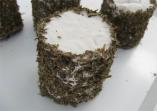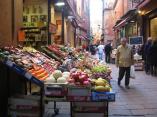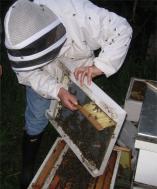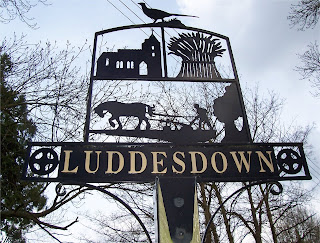Yesterday’s lunch was a delight, in the clean bright and delicious world of Croce di Malta in central Parma.
I’d had a wretched supper the night before, ill-advisedly following an internet recommendation of Trattoria Corrieri, a place I’d passed a thousand times last year when I lived in Parma, but never went in, thinking it smacked of tourist haven. Too many tables, for one thing I guess. When I entered and saw it was apparently owned by the same people who owned Gallo d’Oro (which one of my classmates had been disappointed by), Enoteca i Merli – another nearby eatery – and a disco club, I should have fled, but it was Monday and not that many places are open; certainly none of my favourites.
So I ordered, intrigued, the Tris di Tortelli – a selection of three pastas, two of which are local favourites I’d been wanting in my ritual way to taste again (tortelli d’erbata and tortelli di zucca) and a third that sounded like fun (one made of spalla cotta, which is a delicious salumi). When I finally got my order (after it had been delivered to and half consumed by the man at the next table and whisked away and re-cooked and re-routed without a word of apology from the grim faced waitress) it was lacklustre; all of the tortelli were bland and uninteresting. The melanzane parmigiana which followed it was truly horrible: tough, poorly cooked eggplant and utterly lacking in visual or gustatory charm. The waitress never reappeared – ashamed I hope of her own and her kitchen’s performance – so I left, my only enduring gift a morning after headache from the house wine.
And this is what I got at Croce di Malta. Parmigiana di carciofi – made with fresh artichokes, and every bit as good as the one I had there a year ago.

Followed by zucchini alla scapece with smoked provolone, more a salad since it was served at room temperature. I was told the zucchini had been prepared with oil, a little vinegar and fresh mint; they like to make this with vegetables such as zucchini and eggplant. It was utterly amazing, the zucchini tender and lightly but thoroughly flavoured.

And to finish things off, a beautiful crema caramelata – freckled with vanilla and perfectly smooth and just the right size.

And of course, a caffe macchiato to finish, the milk properly frothed to the right silky consistency.






































